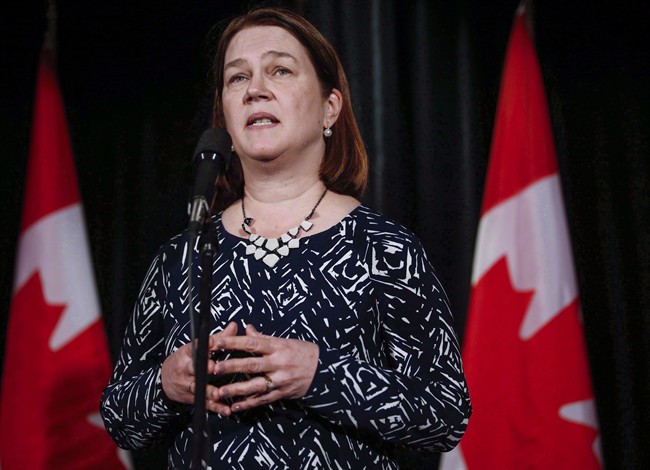Saturday’s interview with federal Minister of Health Dr. Jane Philpott became a challenging exchange as I assessed the minister as refusing to address the very reason the interview had been scheduled. Namely, to challenge my assertions that during the so-dubbed “opioid crisis,” governments are attacking chronic pain patients and slyly directing blame for the crisis towards the 1.5 million Canadians who truly suffer with chronic pain.

Each time I challenged the minister on government or medical authority releases on opioid prescription medication, and directly accused governments of pointing the finger of blame for the crisis at chronic pain patients, the minister acknowledged I had asked a very important and relevant question.
Then, Dr. Philpott ignored the very question which she had declared important and repeated the talking points which do nothing to protect chronic pain patients who require opioids for any level of appreciable pain relief.
Instead, experiencing horror each day remains unaddressed or admitted to by government. It is though, being addressed by the patients who have shared on air the fact that their pain, coupled with their physicians dramatically reducing their opioid daily medication, or cutting it off entirely, suddenly, has caused good and productive members of Canadian society to consider suicide. In fact, to also take one’s own life.
Repeatedly, I challenged the federal minister of health on issues such as her ministry in tandem with the Ontario Ministry of Health staging an Opioid Summit engaging stakeholders. The problem with the summit was that the only stakeholders not invited to participate were chronic pain patients and their doctors. They were told to watch on a webcam.
The federal minister of health, who on CBC suggested generic drug addicts might be helped if they are prescribed actual heroin, no doubt to be administered at supervised injection sites (three more opening in Toronto), would or could not bring herself to state without reservation that the doctor-patient relationship, which is trusted and promoted in all other health matters, should also be trusted in the prescribing of pain medication.
Does some of this “crisis” and attacking of pain patients have to do with cost? I think so. Twenty per cent of the current population suffers chronic pain. That number will only significantly increase with an aging population. Opioids are expensive, and governments are running short of money to fund health care.
Ontario has already somewhat proven the point by now, not funding anyone’s chronic-pain-relieving opioid medication. Such as the elderly lady standing in front of me at a pharmacy who was being told she would have to now pay money she didn’t have for pain relief. The Ontario minister of health is also a doctor.
I reminded Dr. Philpott of these words, “First, do no harm,” the opening line of the Hippocratic Oath all doctors must swear. When the next pain patient kills him or herself, and there’s a U.S.-based Facebook page I’m told which lists chronic pain-related suicides, perhaps “First, do no harm,” should be considered. I’m trying to access the Facebook page, but it’s private. I’ll keep trying.
In the meantime, listen to my interview with Canada’s federal minister of health on Sunday at 3:05 p.m. ET as we play it back on air, followed by chronic pain patient Morgan, whose email I read to the minister during the interview. Morgan, a 38-year-old woman whose life has been hugely compromised by chronic pain suggests she is waiting for her appointment with the pain specialist to whom she has been referred.
Then, depending on whether this doctor agrees to prescribe the only pain medication which allows Morgan to function reasonably, Morgan’s sole options will be to choose between street drugs or suicide.
If Morgan chooses the former, she will be accused of being an addicted opioid user, instead of what she is. A chronic pain patient addicted to freedom from horrid pain. If she chooses the latter, she will be posthumously referenced as a dead drug addict and her death will be cynically used to compromise her peers in the ranks of the pain-afflicted.
Listen to Morgan on Sunday. Listen to the minister on Sunday. If you’re a chronic pain patient, it’s time to form a national association, hire a lawyer and defend yourselves in the courts of Canada. Where I can and will help is in the court of public opinion.
Roy Green is the host of The Roy Green Show and a commentator for Global News.








Comments